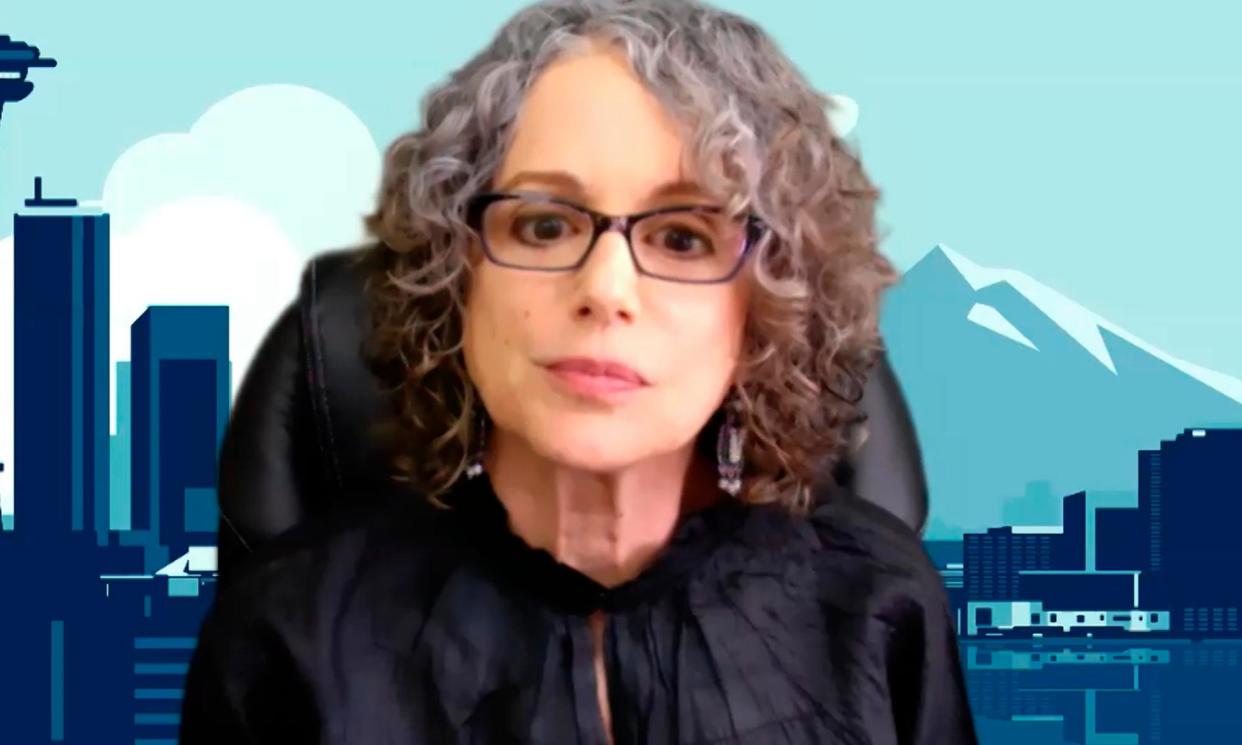Author Robin DiAngelo accused of plagiarism over doctoral thesis

Robin DiAngelo, the author of a number of books on racism including White Fragility and Nice Racism, has been accused of plagiarism over her doctoral thesis.
A complaint citing 20 instances of alleged research misconduct was lodged with the University of Washington – where DiAngelo is an affiliate associate professor of education and completed her PhD – according to the Washington Free Beacon, a conservative news site that has published a number of similar complaints against diversity officials and staff of colour at US universities.
DiAngelo’s 2004 thesis, titled Whiteness in Racial Dialogue: A Discourse Analysis, uses the exact or slightly tweaked wordings of other authors without quotation marks or proper referencing, which is classified as plagiarism under the University of Washington College of Education’s academic integrity policy.
Though DiAngelo lists these authors in a reference section at the end of the thesis, in several cases she did not cite their names next to the relevant sections in the text of the thesis itself.
For example, on page five, DiAngelo summarises an argument made in David Theo Goldberg’s Racist Culture using similar wording to that which appears in Stacey Lee’s Unraveling the Model Minority Stereotype: Listening to Asian American Youth, without an accompanying in-text citation.
Lee wrote that Goldberg “argues that the questions surrounding racial discourse should focus not so much on how true stereotypes are, but on how the truth-claims they offer are a part of a larger world-view, and what forms of action that world-view authorizes”.
DiAngelo wrote that Goldberg “argues that the questions surrounding racial discourse should not focus so much on how true stereotypes are, but how the truth claims they offer are a part of a larger world-view that authorizes and normalizes forms of domination and control”.
Mike Reddy, a senior lecturer at the University of South Wales and a member of the Quality Assurance Agency for Higher Education’s (QAA’s) academic integrity advisory group, considered this to be one of many instances of genuine plagiarism in the complaint. After reviewing all 20 examples, he said that “the frequency and severity would show evidence of knowing plagiarism of texts”.
DiAngelo, who is white, is best known for her book White Fragility: Why It’s So Hard for White People to Talk About Racism, which was published in 2019 in the UK.
“I am confident that the University of Washington will thoroughly review any concerns and I trust the legitimacy of the peer-review process,” DiAngelo said in a statement. “Accusations of plagiarism should be guided by the norms of academia and not by partisan actors with a well-documented agenda to discredit anti-racism work.”
The University of Washington told the Guardian that complaints were confidential, so it could not confirm whether the complaint had been submitted, or by whom.
Sherene Razack, whose work appears in the complaint as an example of that misused by DiAngelo, said her first response was to ask what the investigation was “really about”. “Is it an orchestrated attack on a scholar writing about white supremacy, something along the lines of the take-down of Harvard former president Claudine Gay?”
Gay, Harvard’s first Black president, resigned in January after reports by the Washington Free Beacon identified instances of alleged plagiarism. In February, the Washington Free Beacon published another plagiarism complaint about a diversity, equity and inclusion (DEI) officer at Columbia University, Alade McKen. In March, the site published a similar complaint against the chief diversity officer of the University of Wisconsin-Madison, LaVar Charleston.
“I have no doubt that these allegations have been made by someone with an axe to grind,” said Stephen Gow, another member of the QAA’s academic integrity group and a Leverhulme research fellow at Edinburgh Napier University. As the story was reported in the Washington Free Beacon, “I expect it is written by political opponents of [DEI], which is currently under significant attack in the US context,” he added. However, though “plagiarism accusations are often political, this does not mean they are unfounded”. He said that in his opinion, plagiarism had taken place.
“I think that citational practices may differ and for some it would seem like the paraphrasing of my work should really have been put in quotation marks, whereas for others, paraphrasing is just fine,” said Razack. “Personally, I am not concerned by any of this and I am glad that her arguments rely on arguments I’ve made.”
Reddy argued that “any significant academic misconduct poisons the whole tree of knowledge” and thought removal of the doctorate would be a “reasonable consequence of a valid investigation”. Political “or other motives are irrelevant to an allegation of misconduct”, he added. “Far too frequently are prominent academics given ‘benefit of the doubt’ when their students can be heavily penalised for similar offences.”


